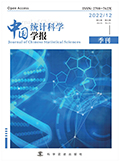

城市交通系统运行中的突出矛盾体现为路网交通流分布不均衡, 以及出行者所能掌握的实时路况信息不足。在此背景下, 如何有效引导车辆分流, 提高出行者对诱导路径的依从性, 已成为当前交通管理领域的核心挑战。本文基于委托-代理理论框架, 将政府视为委托人, 出行者作为代理人, 研究路径诱导接受率的提升机制。通过建立数学模型分析政府政策对出行者行为的激励效果, 探讨提高诱导接受率的有效途径。研究结果表明, 通过合理的激励机制设计, 可显著提升出行者的路径诱导接受率, 为城市交通管理提供理论依据和实践指导。
The prominent contradictions in the operation of urban transportation systems are reflected in the uneven distribution of road network traffic flow and the insufficient real-time road condition information that travelers can grasp. Against this backdrop, effectively guiding vehicle diversion and improving travelers’ compliance with induced routes have become core challenges in the field of traffic management. Based on the principal-agent theory framework, this study treats the government as the principal and travelers as agents to investigate mechanisms for enhancing the acceptance rate of route guidance. A mathematical model is established to analyze the incentive effects of government policies on traveler behavior. and to explore effective approaches for improving route guidance acceptance. The results demonstrate that well-designed incentive mechanisms can significantly increase travelers’ acceptance of route guidance, providing both a theoretical foundation and practical insights for urban traffic management.